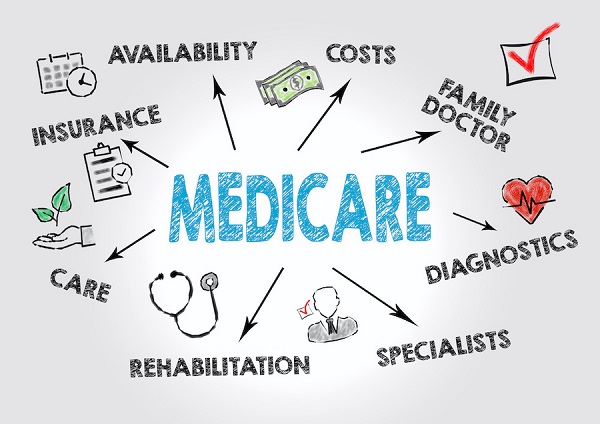
Medicare is a federal health insurance program that provides benefits to Americans aged 65 or older, younger people with disabilities, and others. Medicare is funded jointly by the government and private insurance through a series of taxes.
Parts Of Medicare
1. Medicare Part A
Medicare Part A also referred to as hospital insurance, is the part of Medicare that pays for inpatient hospital stays and related care for those who have contributed to the program through payroll taxes. Part A covers inpatient services and long-term nursing care costs, but some exceptions exist. It means that Medicare will not pay for all your medical expenses but the specific things it covers.
2. Medicare Part B: Medical Insurance
Medicare Part B, also called supplementary medical insurance, is a medical insurance that covers outpatient care, including services for doctor’s visits, tests, home health care, and durable medical equipment.
3. Medicare Part C: Medicare Advantage
Medicare Advantage is a program that gives you the same benefits as traditional Medicare but allows you to choose the coverage rather than having it provided by the government. Medicare Advantage plans vary significantly in their benefits, so it’s essential to find out what each program offers. These plans include prescription drug coverage, dental and vision coverage, and long-term care services like home health and hospice care.
4. Medicare Part D: Prescription Drug Coverage
Part D drug coverage is available to those enrolled in Part A and Part B of Medicare who pays monthly premiums. The range protects patients against the high costs of their prescription medications. Patients usually have a choice between several different private insurance companies that sell prescription drugs under contracts with Medicare. The companies provide the drugs no matter which plan the patient selects, and there are no restrictions on what medicines are covered.
Medicare Eligibility
You can be eligible for Medicare at age 65 if you aren’t disabled and have worked for at least ten years. In addition, you haven’t been entitled to Social Security disability benefits in the previous 24 months and haven’t paid premiums on another health insurance plan. If you’re within ten years of reaching that age, consider filing a form with your employer so they can make sure you take advantage of your health benefits.
To be eligible for Part A hospital insurance, you must have an established condition that makes it difficult to perform daily activities and isn’t temporary. A disability is a chronic illness or physical disease expected to last at least one year or result in death. In addition, you must have earned enough wages to qualify for Social Security disability benefits, and your plan must accept you for all Medicare-covered services.
If kidney disease has led to the need for dialysis or transplant surgery and put you in poor health, you may be eligible for Medicare with limited coverage. The only exception is if you are a child.
Medicare Enrollment
Enrollment in Medicare Part A is automatic when you’re eligible, and there’s no enrollment fee. If you want to enroll in Part B, you must first pay a monthly premium unless you’re receiving Social Security or Railroad Retirement benefits or are disabled. You can also enroll in the program if your employer provides health insurance, but you must pay the total price for coverage.
You don’t need a particular enrollment form to enroll in Medicare Part A or Part B. You’re entitled to free health care at all qualified providers, regardless of your employment or where you live. You need proof that you’ve paid your premiums, so Medicare will send you a notice informing you that the program has noted that you’re enrolled and what days to expect its services each year.
You’ll be automatically enrolled in the standard Medicare Part A plan if you’re eligible for Medicare. It is a fixed payment plan that covers inpatient and outpatient hospital care, ambulatory services, and related nursing home care.
Medicare insurance is something that everyone should have if they get the chance. There are many various plans that people can get. These are just some of the most common types of projects you can find out there when it comes to Medicare. Read this article to learn more about Medicare and its available plans that you can enroll in if needed.
Related Articles & Free Vermont Maturity Magazine Subscription

Approaching 65? Here’s What to Know About Enrolling in Medicare
Comparing Medicare Plans Could Save You Money


Comment here